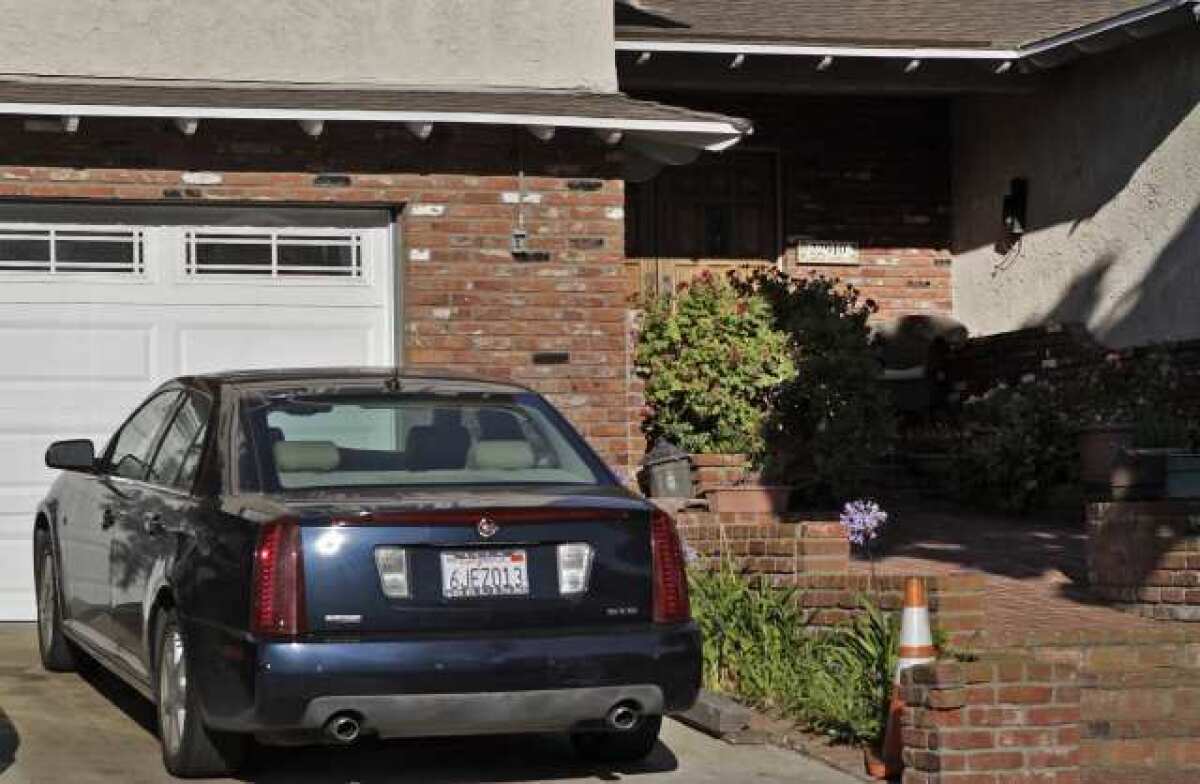Coliseum officials got big vehicle perks

In his final two years running the Los Angeles Memorial Coliseum, Patrick Lynch enjoyed around-the-clock use of a 2009 Cadillac owned by the landmark stadium.
The car had been an upgrade, replacing a 2005 model from the Coliseum fleet. But Lynch didn’t give up the older car. He took it home -- for keeps -- transferring the title to his name without paying the Coliseum a penny, according to records and interviews.
Lynch’s lawyer said one or more of the elected officials and political appointees who govern the Coliseum and companion Sports Arena gave his client permission to take the car, but the head of the stadium authority denied that.
The Cadillacs are among several luxury vehicles driven by stadium managers in recent years and completely or partly paid for by the Coliseum Commission. Another was a 2003 Lincoln Town Car -- a Lynch castoff -- that the facility’s technology expert bought from the commission at a steep discount. A third is a 2011 Jaguar currently driven by the finance director.
Five Coliseum employees have received car allowances of $4,800 to $7,200 annually. They cost the commission more than $57,000 in the last two years, records obtained under the California Public Records Act show.
“It’s an affront to the taxpayers of Los Angeles and California,” said Steve Ellis, vice president of the watchdog group Taxpayers for Common Sense. “It’s very hard to justify providing a car to the vast majority of public officials. Certainly, there is no reason that they should be [given] luxury vehicles.”
Lynch quit as Coliseum general manager amid a burgeoning financial scandal in February after 17 years on the job. Top officials at the storied Olympiad site and home of USC football have been under scrutiny since that month, when The Times reported that Lynch had approved questionable financial dealings by one of his subordinates, events manager Todd DeStefano.
While working for the Coliseum, DeStefano formed two private companies that garnered at least $1.8 million from firms doing business with him there, according to state financial disclosures and people familiar with the transactions. He quit in January, and state and county authorities have launched conflict-of-interest investigations into his affairs. He has denied any wrongdoing.
The 2005 Cadillac STS still belongs to Lynch, registration records show. Lynch couldn’t remember which commissioners said he could have it and has no approval in writing, said his attorney, Tony Capozzola. The vehicle was intended as compensation for Lynch’s work on behalf of a nonprofit arm of the stadium, the lawyer said.
Commission President David Israel said Lynch was not entitled to the vehicle, whose registration was switched from the nonprofit association to Lynch in August 2009.
“He did not have permission to take the car,” Israel said. “None of us on the commission was aware of this.”
How much work-related driving the managers are required to do is unclear, as is the reason the commission has paid for such expensive cars. The Coliseum has been losing money.
Work travel might include two or three trips a week to nearby Los Angeles City Hall or Staples Center, said the commission’s interim general manager, John Sandbrook, who succeeded Lynch in March. Occasionally, travel might be necessary to farther destinations such as UCLA, which will play basketball at the Sports Arena next season, he said.
Sandbrook said he was “uncomfortable with the whole concept of car allowances,” although he had taken no steps to stop them.
Before the Cadillacs, Lynch drove a 2003 Lincoln Town Car Signature owned by the commission, which is a joint operation of the state and the city and county of Los Angeles. In March 2006, the technology officer was allowed to buy the Town Car for $13,000, said Sandbrook.
Sandbrook said he believed the price was fair, based on the Kelley Blue Book. But the 2006 Kelley Blue Book lists the resale value of the car at about$18,000 to $22,000 if it had standard features and 43,000 to 48,000 miles on it.
A report by the auto history service Carfax does not show the Lincoln’s mileage in March 2006 but says it was 46,461 in July 2006. The report says the Lincoln had no significant damage. It does not itemize any extra options the car might have.
After the purchase, the technology chief, Leopold Caudillo, kept the commission’s exempt-status government license plates on the car, Sandbrook said. Keeping the plates saved Caudillo hundreds of dollars in registration and other fees, according to the Department of Motor Vehicles.
Moreover, the Coliseum was potentially “liable for any parking tickets, etc., that are tied to the plate,” DMV spokesman Michael Marando said in an email. “That is why it is important to pull the plates.”
Caudillo registered the car in his name in May and removed the exempt plates after The Times began looking into the commission’s finances. Sandbrook said he ordered Caudillo to change the plates. Caudillo did not return telephone calls from The Times.
The commission has also picked up most of the tab for the Jaguar XF leased in the finance director’s name. The agency reimbursed the official, Ronald Lederkramer, for about $1,375 in initial leasing costs and registration fees and $195 in damage and mileage charges for an Infiniti he had previously leased and was turning in.
The agency covers Lederkramer’s personal auto insurance and pays him a $600 monthly car allowance, according to expense account records and other commission documents.
Lederkramer had been allowed to bill the commission for the costs of registering, servicing, insuring, and buying tires for the Infiniti as well, the records show.
The cars are “something I intend to address with him,” Sandbrook said in an interview. He said he does not drive a Coliseum-owned car or receive a vehicle allowance.
Lederkramer knew that Lynch took ownership of the 2005 Cadillac but accepted Lynch’s assertion that he had permission to do so, according to Sandbrook.
“He trusted his boss,” Sandbrook added. “Is he kicking himself today? Of course he’s kicking himself.”
Lederkramer, whose total compensation in the last fiscal year was about $195,000, did not respond to interview requests.
Sandbrook referred questions about whether the managers used a Coliseum credit card for gas purchases to commission attorneys, who did not return telephone calls.
Lynch’s annual compensation was about $291,000. By virtue of his position as general manager, he served as chief executive of the nonprofit association, a conduit for concession revenue from the Coliseum and Sports Arena.
On the association’s tax returns for the two fiscal years encompassing 2009, Lynch reported working an average of five hours per week for the organization. He did not report any compensation from the association, including the Cadillac.
paul.pringle@latimes.com
ron.lin@latimes.com
More to Read
Start your day right
Sign up for Essential California for news, features and recommendations from the L.A. Times and beyond in your inbox six days a week.
You may occasionally receive promotional content from the Los Angeles Times.








